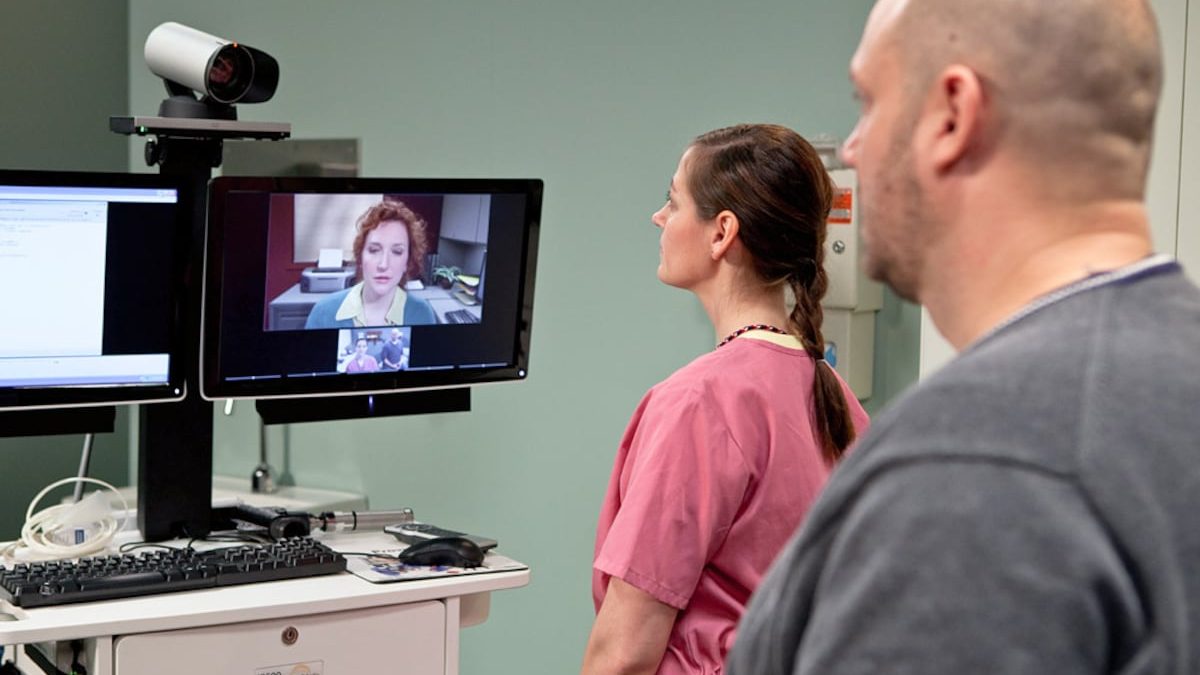Veterans Affairs leaders plan to eliminate all co-pays for telehealth services and award grants for telehealth clinics in rural areas, part of ongoing efforts to expand virtual care options within the medical care system.
In an announcement Monday, department officials said the moves could help “lower costs and expand access to care for all those who served.” Both proposals will have to go through a months-long rulemaking process before either could be put into effect.
“Waiving co-pays for telehealth services and launching this grant program are both major steps forward in ensuring veterans can access health care where and when they need it,” VA Secretary Denis McDonough said in a statement.
“VA is the best and most affordable care in America for veterans. With these steps, we can make it easier for veterans to access their earned VA health care.”
RELATED
Outpatient co-pays for VA medical appointments — in person or online — can be up to $50 per session. But those fees can often be waived due to a veteran’s disability status, or the type of appointment, or because of a veteran’s financial hardships.
The proposed grant program — which would operate through the existing Accessing Telehealth through Local Area Stations (ATLAS) program — would provide funding to nonprofits and private businesses to offer veterans “comfortable, private spaces equipped with high-speed internet access and the technology to meet with VA providers remotely.”
Money could also be used to train on-site personnel to help with connecting physicians and patients.
Telehealth has become a significant part of the department’s health care portfolio since the COVID-19 pandemic began in 2020. In fiscal 2023, more than 2.4 million veterans — about 40% of the total number of patients in the VA health care system — had at least one virtual medical appointment.
Department leaders have promised to keep expanding those options while still ensuring that veterans who prefer face-to-face appointments have that opportunity.
In September, VA officials announced an expansion of tele-emergency care nationwide. In a separate move, the department also dropped co-pays for veterans’ first three outpatient mental health care visits annually.
No timeline has been announced for completion of either of the latest initiatives.
Leo covers Congress, Veterans Affairs and the White House for Military Times. He has covered Washington, D.C. since 2004, focusing on military personnel and veterans policies. His work has earned numerous honors, including a 2009 Polk award, a 2010 National Headliner Award, the IAVA Leadership in Journalism award and the VFW News Media award.
Read the full article here


